Похожие презентации:
Meals and cooking
1. Meals and Cooking
2.
Hello!My name is Fluffy and I
absolutely love food!
So my friends and me
want to tell you something
about it.
3. How do you think what verbs in bold mean?
When we cook, we• boil,
• roast,
• fry or stew our food.
How do you think
what verbs in bold mean?
4.
We boil in a cooking poteggs, meat, chicken, fish,
milk, water and
vegetables.
5.
We fry in a paneggs, fish, meat and vegetables.
6.
We stew inmulticooker fish,
meat, vegetables.
7.
We roastmeat or chicken.
8.
To make teaTo make coffee
9.
We put salt, sugar, pepper,vinegar and mustard into
our food to make it salted,
sweet, sour or simply tasty.
Our food may taste good or
bad or it may be tasteless.
How do you think
why the man is so unhappy?
10. English breakfast
The usual meals in England arebreakfast, lunch, tea and dinner.
For breakfast English people
mostly have porridge or cornflakes with milk or cream and
sugar, bacon and eggs, marmalade
with buttered toast and tea or
coffee.
For a change they can have a
boiled egg, cold ham, or fish.
11. English lunch
English people generally havelunch about one o'clock.
At lunch time in a London
restaurant one usually finds a
mutton chop, or steak and chips,
or cold meat or fish with
potatoes and salad, then a
pudding or fruit to follow.
12. Tea traditions
Afternoon tea can hardly be called a meal.It is a substantial meal only in well-to-do families.
It is between five and six o'clock. It is rather a sociable sort of
thing, as friends often come in then for a chat while they have
their cup of tea, cake or biscuit.
13. English dinner
In some houses dinner is thebiggest meal of the day.
But in great many English homes,
the midday meal is the chief one
of the day, and in the evening
there is usually a much simpler
supper — an omelette, or sausages,
sometimes bacon and eggs and
sometimes just bread and cheese,
a cup of coffee or cocoa and fruit.
14.
1. What do people in your country eatfor breakfast, lunch and dinner?
2. Are national food traditions in your
country similar to English tradition?
(common and distinctive features).
3. Write about food traditions in your
country/family/any other country.
15.
AA
A
A
A
A
A
spoon – ложка
fork – вилка
knife – нож
dish – блюдо/тарелка
plate - тарелка
table – стол
chair – стул/кресло
16. Recipes
17. Devonshire Honey Cake
1. Is it look tasty?2. Have you ever tried Devonshire honey cake or something like that?
3. Do you want to try it or cook eat yourself?
4. In which country do people eat Devonshire honey cake
18.
Hi!I’m glad too see you
again!
And today I want to
tell you how to cook
my favorite dish!
19. Breakfast Pepperoni Pizza
Chopped – нарубленный;a crust – корочка;
shredded cheese – тертый
сыр;
slices pepperoni - острая
копченая колбаса пеперони;
a baking sheet – лист для
выпечки.
20.
Ingredients2 eggs
1 green onion, chopped
2 teaspoons water
1 teaspoon butter
1 prebaked mini pizza crust
1/3 cup shredded cheese
1/4 cup pizza sauce
12 slices pepperoni
21. Method
1. In a small bowl, beat the eggs,onion and water. In a small pan,
heat butter until it’s hot. Add
egg mixture; cook and stir over
medium heat.
2. Place the crust on a baking
sheet. Add about 2 tablespoons
cheese and about 2 tablespoons
pizza sauce. Then put egg
mixture. Add pepperoni on over
the top.
22.
Bake about 10-12minutes.
Let it stand for 5
minutes before
serving.
23.
Write the recipe of your favorite dishusing next instructions:
1. Name of dish
2. Ingredients
3. Number of persons (serving)
4. Total time cooking
5. Method.
6. Use Imperative Mood.
24.
Breakfast*What is breakfast?
*Why is breakfast
important?
*Some breakfast
ideas
*Brain food
*What some
children say
25. What is breakfast?
The word breakfast is really twowords, 'break' and 'fast'.
'Fast' is when you don't eat food all
nigh, because you are sleeping.
So, breakfast is when you break your
fast by eating.
Your stomach will be very happy
about it and your body will be able
to use the food to get the energy to
send you off to school!
26. Why is breakfast important?
What you eat is turned intoenergy by your body.
If you don't eat when you get up,
your energy is low, you can't
think or work well and your
stomach is letting you know that
it is waiting for food!
When your energy level are low,
you can’t think about school
lessons (Maths or English).
27. Some breakfast ideas
Who makes breakfast in your house?Mum, Dad, older brothers or sisters, or
do you do it yourself? Anyway, it is
important to drink and to eat something
in the morning.
*Toasts, porridge and eggs will give
you energy for school activities.
*Milk and other milk products are good
for growing bodies and healthy bones.
*Using a blender to blend fruit and milk
into a smoothie can give you a quick,
easy meal with lots of goodness.
*Cut up fresh fruit and eat it with
yoghurt, and a piece of toast.
28. Match the words with pictures below
A stomach to brakea toast to cut
to drink to eat
porridge
milk
eggs
29. Make list of food which you eat for breakfast using next words and phrases:
Usually / sometimes / always/ seldom/never
I eat/drink
I like
I don’t like
30.
Some kids just cannot eat beforethey get to school.
There can be lots of reasons, so
some schools have a breakfast
program where you can get
something from the canteen before
school.
Some schools have a 'Brain food'
program where each class takes a
break after a lesson to eat
something. During this break kids
eat healthy food such as nuts, fruit,
vegetables or yoghurt.
This food helps children to think
faster.
31. What some children say
"At my school we can eat fruit andvegetables whenever we want." Derryth
"In our family every person make
breakfast oneself. I can do scrambled
eggs on toast now." Kara
"We have a big breakfast on Sunday
because it's the only day when the
whole family is there. I like that." Jacinta
32. Match the words with pictures below
An yogurta canteen
a brain
nuts fruits vegetables
33.
watertoast
jam
tea
orange juice
milk
yogurt
coffee
eggs
butter
biscuits
corn flakes
sugar
34. Funny Stories
35. Duck
A duck walks into a feed store and asks, "Got any duck feed?"The clerk tells him, "No, we don't have a market for it so we don't carry it."
The duck says, "Okay," and leaves.
The next day, the duck again walks in to the feed store and asks, "Got any
duck feed?"
Again the clerk says no and the duck leaves.
Next day, the duck once again walks in, and asks, "Got any duck feed?"
The clerk says, "I've told you twice, we don't have duck feed, we've never
had duck feed and we never will have duck feed. If you ask me again, I'll nail
your feet to the floor." The duck leaves.
The next day, the duck walks in and asks, "Got any nails?"
"No."
"Got any duck feed?"
36. Mental Patient
John and David were both patients in a Mental Hospital.One day, while they were walking, they passed the hospital
swimming pool and John suddenly dove into the deep end.
He sank to the bottom and stayed there. David promptly
jumped in and saved him, swimming to the bottom of the pool
and pulling John out.
The medical director came to know of David's heroic act. He
immediately ordered that David be discharged from the
hospital as he now considered him to be OK. The doctor said,
"David, we have good news and bad news for you! The good
news is that we are going to discharge you because you have
regained your sanity. Since you were able to jump in and
save another patient, you must be mentally stable. The bad
news is that the patient that you saved hung himself in the
bathroom and died after all."
David replied, "Doctor, John didn't hang himself. I hung him
there to dry."
37. Bad Date Joke
“Hi Sarah, listen I only have a minute. I’m about to getpicked up for a blind date, can you call me in a half hour
just in case it’s going bad? Yes? Ok great! We’ll speak.”
Raquel gave herself a quick spray of perfume, checked
herself out one more time in the mirror, and headed
outside to wait for the guy. Sure enough after twenty
minutes Raquel was discreetly checking her watch. After
ten more long minutes her phone finally buzzed.
Raquel listened for a few seconds, grimly pursed her lips,
and turned to her date, “I feel terrible, but my
Grandmother is terribly sick, and I must go home now .”
“No problem!” Said her date with a big grin, “in a few
more minutes my dog was going to get run over!”
38. Crocodile
TEACHER: Glenn, how do you spell 'crocodile?'GLENN: K-R-O-K-O-D-I-A-L'
TEACHER: No, that's wrong.
GLENN: Maybe it is wrong, but you asked me how I spell it.
39.
One famous composer was once invited todinner. The dinner was delicious: the
guests were served big juicy pieces of
mutton, pork and lamb.
After the meal the host’s daughter played
some pieces by Beethoven, Mozart and
Brahms.
When the concert was over the girl’s
mother came to the composer and asked:
“Maestro, which piece did you like most of
all?” “The piece of lamb,” was the answer.
40.
Two men, who are in the country forholidays, are walking in an orchard.
They see that there are a lot of apples
on all trees. Only on one tree there
are no apples at all. A small country
boy is sitting near that tree.
They call him: “Come here, boy. Do
you know why there are no apples on
this tree?” “Of course I do,” answers
the boy, “because it’s an oak-tree.”
41. Horror Stories
42. What’s in the basement?
Mommy told me never to go into the basement, but Iwanted to see what was making that noise. It kind of
sounded like a puppy, and I wanted to see the puppy,
so I opened the basement door and tiptoed down a
bit. I didn’t see a puppy, and then Mommy yanked
me out of the basement and yelled at me. Mommy
had never yelled at me before, and it made me sad
and I cried.
Then Mommy told me never to go into the basement
again, and she gave me a cookie. That made me feel
better, so I didn’t ask her why the boy in the
basement was making noises like a puppy, or why he
had no hands or feet.
43. All I saw was red
I checked into a small hotel. It was late and I was tired. I toldthe woman at desk that I wanted a room. She gave me the key
and said, “One more thing - there is one room without a number
on your floor and it is always locked. Don’t even peek in there.”
I took the key, went into my room and tried to sleep.
Night came and I heard trickling of water. I could not sleep, so I
opened my door and went into the hall. The sound was coming
from the room with no number. I pounded on the door. No
response. I looked into the keyhole and saw nothing except red.
Water was still trickling. I went down to the front desk to
complain.
“By the way who is in that room?” She looked at me and told
me the story. There was woman in there. She was murdered by
her husband. Her skin was all white, except for her eyes, which
were red.
44. Useless
s45.
A hedgehog’s heartbeats 300 times a
minute on average.
46.
Between 25% and 33%of the population
sneeze when exposed
to light.
47.
The most common namein world is Muhammad.
48.
Mount Olympus Mons onMars is three times the
size of Mount Everest.
49.
You can be fined up to$1,000 for whistling
on Sunday in Salt
Lake City, Utah.
50.
In space, astronauts areunable to cry, because
there is no gravity and the
tears won’t flow.
51.
There are more plasticflamingos in the U.S that
there are real ones.
52.
During it’s lifetime anoyster changes its
sex from male to
female and back
several times.
53. Choose one of the following topics and wright your own story/facts:
1) Funny story2) Horror story
3) Facts (6-7)
54. Colors
55.
Hello! My name is Marquis!I am WHITE. And it is my
favorite color.
I like to eat WHITE milk, play
with WHITE thread and
catch WHITE mouse.
And I absolutely like WHITE
snow!
56.
I am Bagira and Ilike BLACK color.
I wear BLACK fur
and hunt in the
BLACK night
57.
Dragon has REDskin and RED fire.
58.
YELLOW sun lovesYELLOW flowers
and YELLOW
bananas.
59.
GREENgrasshopper
lives in GREEN
grace and eats
GREEN
cucumbers.
60.
BLUE whale livesin the BLUE sea
and likes BLUE
seaweed.
61.
The BROWN bearloves BROWN
CHOCOLATE.
His friend is
BROWN owl.
62.
ORANGE foxdoesn’t like eat
ORANGE fruits.
She eats ORANGE
animals and birds.
63.
PINK flamingoslove PINK
sundown.
64.
This is snails.They are PURPLE.
And they like eating PURPLE grape.
65.
Milk, thread, mouse, snow areFur, night are
Skin, fire are
Sun, flowers, bananas are
Grasshopper, grace, cucumber are
Whale, sea, seaweed are
Bear, chocolate, owl are
Fox, fruits are
Flamingos, sundown are
Snails, grape are
66. Origins of the Days of the Week
Have you ever wondered, "Why is a week seven days long?"How about where the names of each weekday come from?
67.
The seven-day week originatesfrom the calendar of the
Babylonians, which in turn is based
on a Sumerian calendar dated to
21st-century B.C.
Seven days corresponds to the
time it takes for a moon to
transition between each phase:
full, waning half, new and waxing
half.
Because the moon cycle is 29.53
days long, the Babylonians would
insert one or two days into the final
68.
Jewish tradition also observes aseven-day week.
The Romans also inherited this
system from Babylonian tradition,
though they didn’t begin using it
until the instatement of the Julian
Calendar in the first-century B.C.
69.
The Romans named the days of theweek after their gods and
corresponded to the five known
planets plus the sun and moon
(which the Romans also considered
planets).
To this day, all Romance languages
(most familiarly Spanish, French,
and Italian) still bear the mark of
Roman day names, the exception
being Sunday, which now translates
to “Lord’s Day” and Saturday, which
translates to "Sabbath."
70. Monday
Monday likewisecomes from Old
English “Mōnandæg,”
named after Máni, the
Norse personification
of the moon.
71. Tuesday
Tuesday comes from OldEnglish “Tīwesdæg,”
after Tiw, or Tyr, a onehanded Norse god of
dueling. He is equated
with Mars, the Roman
war god.
72. Wednesday
Wednesday is "Wōden's day."Wōden, or Odin, was the ruler
of the Norse gods' realm and
associated with wisdom,
magic, victory and death.
The Romans connected Wōden
to Mercury because they were
both guides of souls after
death. “Wednesday” comes
from Old English
“Wōdnesdæg.”
73. Thursday
Thursday, "Thor's day," getsits English name after the
hammer-wielding Norse god
of thunder, strength and
protection.
The Roman god Jupiter, as
well as being the king of
gods, was the god of the sky
and thunder. “Thursday”
comes from Old English
74. Friday
Friday is named after the wife ofOdin. Some scholars say her
name was Frigg; others say it
was Freya; other scholars say
Frigg and Freya were two
separate godnesses.
Whatever her name, she was
often associated with Venus, the
Roman goddess of love, beauty
and fertility. “Friday” comes
from Old English “Frīgedæg.”
75. Saturday
As for Saturday, Germanic and Norse traditions didn’t assign any oftheir gods to this day of the week. They retained the Roman name
instead.
The English word “Saturday” comes from the Anglo-Saxon word
“Sæturnesdæg,” which translates to “Saturn’s day.”
76. Sunday
Sunday comes from OldEnglish “Sunnandæg,"
which is derived from a
Germanic interpretation of
the Latin dies solis, "sun's
day."
Germanic and Norse
mythology personify the
sun as a goddess named
Sunna or Sól.
77.
Hello! It’s me again!And today I’m going to
tell you about my
everyday duties.
Actually, it’s not duties,
because I do nothing.
But, by the way, there is
something especial about
every day…
78. Monday
On Monday I usually seat by the phone and communicate withmy friends.
We discuss important issues. For example, what we can eat for
lunch or what movie better watch in the evening.
79. Tuesday
On Tuesday I get ridof uninvited guests in
my house. But it’s
useless!
They are coming
every Tuesday again!
80. Wednesday
On Wednesday Ienjoy my life,
walk among
trees and listen
to birds singing.
81. Thursday
On Thursday I alwaystake a sunbath. It’s
good for my fluffy fur
and mood!
82. Friday
On Friday I buy alot of ice-cream
and eat it all day!
83. Saturday
In the end of week Ifeel myself so tired!
That’s why I do
nothing on Saturday
but eating pudding.
84. Sunday
On Sunday I visitmy mommy and
we spend time
together.
I love my mom!
And you?
85. And what do you do every day?
Write your own list of every day’sduties for:
Monday
Tuesday
Wednesday
Thursday
Friday
Saturday
Sunday
86. What will life be like in 2035?
1. How do you think how our life willchange in the future?
2. Which new technologies will
appear? What will be with food,
love and work?
3. What things will be over?
87. Grasshopper nuggets, ambulance drones and self-driving cars… How different might life be 20 years from now? Technology expert Dean Evans investigates.
Back in 1995 we were in the early days of theinternet, we worked in cubicles and our
computers were chunky and powered by
Windows 95. There were no touch screen
phones or flat screen TVs; people laughed at the
idea of reading electronic books.
So, what will our world really be like 20 years
from now? The world in 2035 will probably be
much like it is today, but smarter and more
automatic. Some innovations we might not
notice, while others will change our lives forever.
88. The future of food
What it won’t be like: The scene in “WillyWonka & the Chocolate Factory”, where Violet
Beauregarde
hassays:
a three-course
roast dinner
What it could be like: Google’s
Ray Kurzweil
‘The next major
a stick of chewing
food revolution will be verticalinagriculture
in which gum.
we grow
food in vertical buildings rather than horizontal land:
hydroponic plants for fruits and vegetables and in-vitro
cloned meat.’
If that doesn’t work, we could be eating insects in 2035.
Already popular in parts of Asia, insects are protein-rich, low
in fat and a good source of calcium. Hey, don’t knock a
roasted grasshopper until you try it.
89. The future of love
What it won’t be like: The movie “Her”, where Joaquin Phoenix falls inlove with an artificial intelligence operating system that has Scarlett
Johansson’s voice.
What it could be like: We are becoming more
independent and less constrained by the old social
norms. This will have an impact on the relationships
we form, with fewer people choosing traditional
marriage, a rise in official (and unofficial) civil
partnerships, and more people remaining single for
longer, if not forever.
90. The future of work
What it won’t be like: The film“Metropolis”, where battalions of sullen
workers are machines which work tenhour shifts.
What it could be like: Automation is likely to make some jobs redundant: taxi drivers
replaced by self-driving cars; receptionists replaced by robots.
Obviously, there will also be new jobs created: the computer engineer/mechanic who fixes
the self-driving taxis; bioengineers; space tour guides; and vertical farmers.
Those of us who work probably won’t do so in a traditional office either. We’re already
seeing a shift in the definition of work: it’s now a task you perform, not a place you go to.
Productivity is no longer measured by sitting at a desk.
91. The future of health
What it won’t be like: Any episode of“Star Trek” where Bones uses a tricorder,
diagnoses the illness and then cures it with
hypo-spray.
What it couldabe
like: Prevention will become
the focus as we gain greater control of our health
information, using self-monitoring biosensors and
smart watches to continuously gather fitness data.
People will be able to take action early, changing
lifestyle habits or taking designer drugs tailored to
their individual DNA.
92. The future of technology
What it won’t be like: The film “Elysium”, wherethe super-rich have abandoned earth to live on a luxury
space station.
Technology will get smaller, smarter and cheaper. In fact, it will get so
small, smart and cheap that we’ll be able to put computers and sensors into almost
anything – fridges will tell us when we’ve run out of milk, bins will tell the council
when they’re full, televisions will notice when we’ve stopped watching and turn
themselves off to save power.
What it could be like:
We’re on the road to the internet of things where everything is connected, not only
to the internet but also to one another.
93. Home task
1. Choose one of these topics: food,health, love, technologies, work.
2. Write essay about our future life.
94. Agreement and disagreement
95. So do I / Neither do I
I am a doctor. - So am I.I am not a doctor. - Neither am I.
96. Express your agreement
I often drink orange juice.He never liked Mary.
I have a big car.
My father hasn’t finished his work yet.
I will go to Barbados next summer!
My brother can’t ski.
I was sleeping at 9 o’clock.
97. Me too/Me neither
love Angelina Jolie. - Me too!I haven’t been to Spain. - Me neither.
98. Agreement
I agree with you 100 percent.I couldn't agree with you more.
I agree entirely. / I totally agree. / I completely agree.
That's so true.
That's for sure.
You're absolutely right.
I think you're right
Absolutely / Exactly
That's exactly how I feel.
I'm afraid I agree with James.
I have to side with Matt on this one.
No doubt about it.
I suppose so./I guess so.
You have a point there.
I was just going to say that.
Agreement
99. Disagreement
I don't think so.No way.
I'm afraid I disagree.
I can't agree with you.
I totally disagree. / I don't agree at all.
I beg to differ.
I don't share your opinion.
I'd say the exact opposite.
Not necessarily.
That's not always true. / That's not always the case.
No, I'm not so sure about that.
I think we're going to have to agree to disagree.
I couldn't agree with you less.




















































































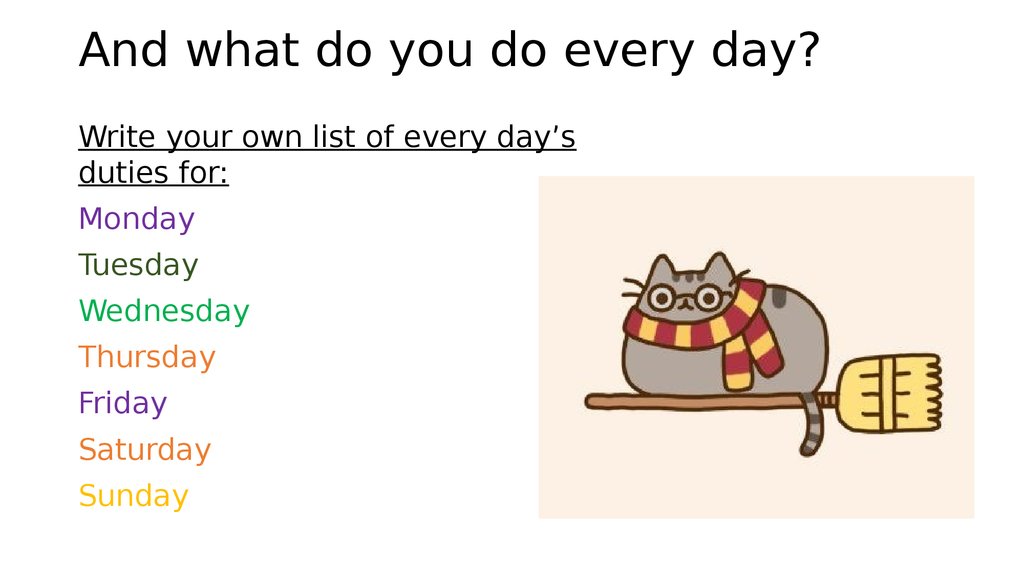

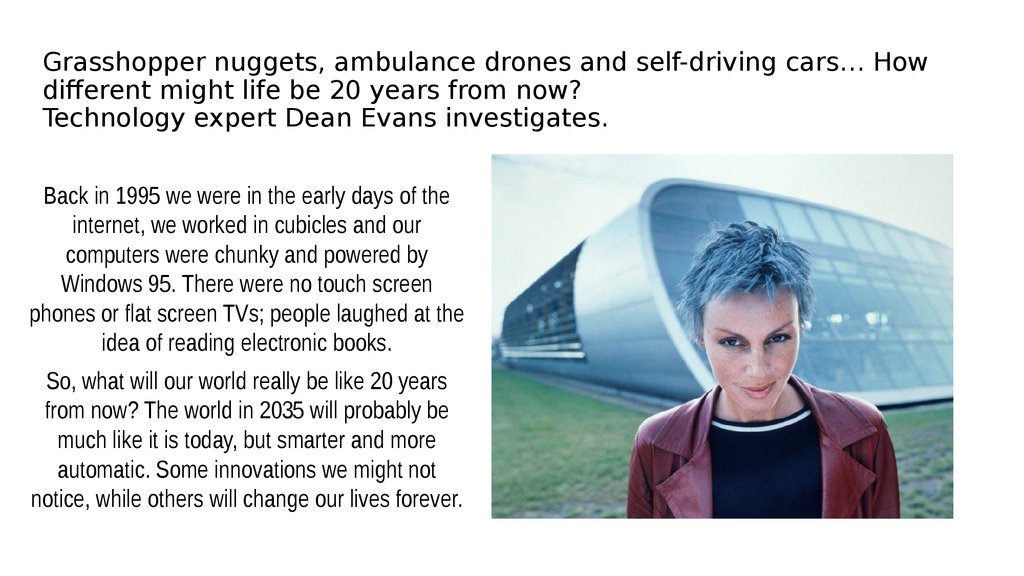
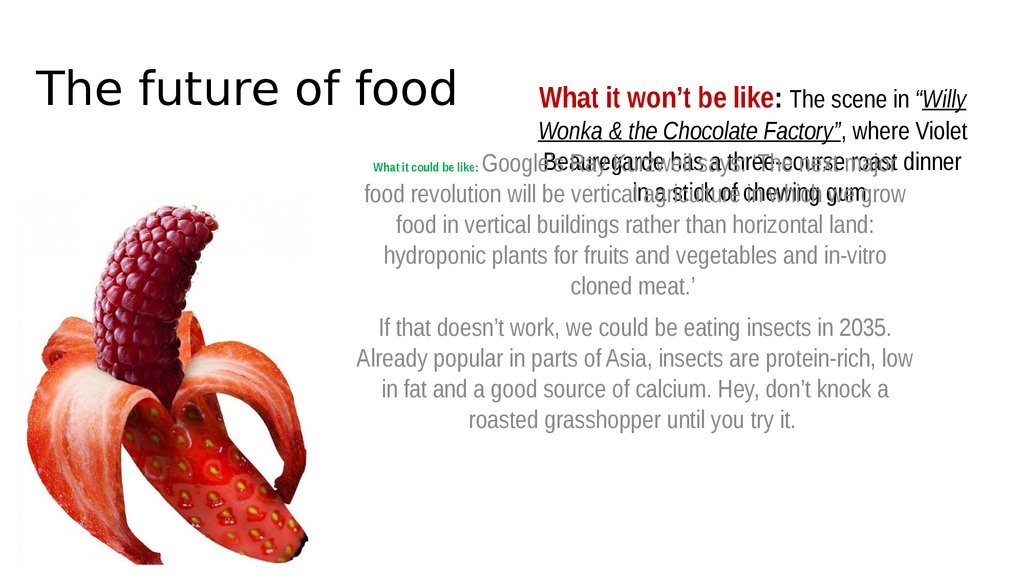
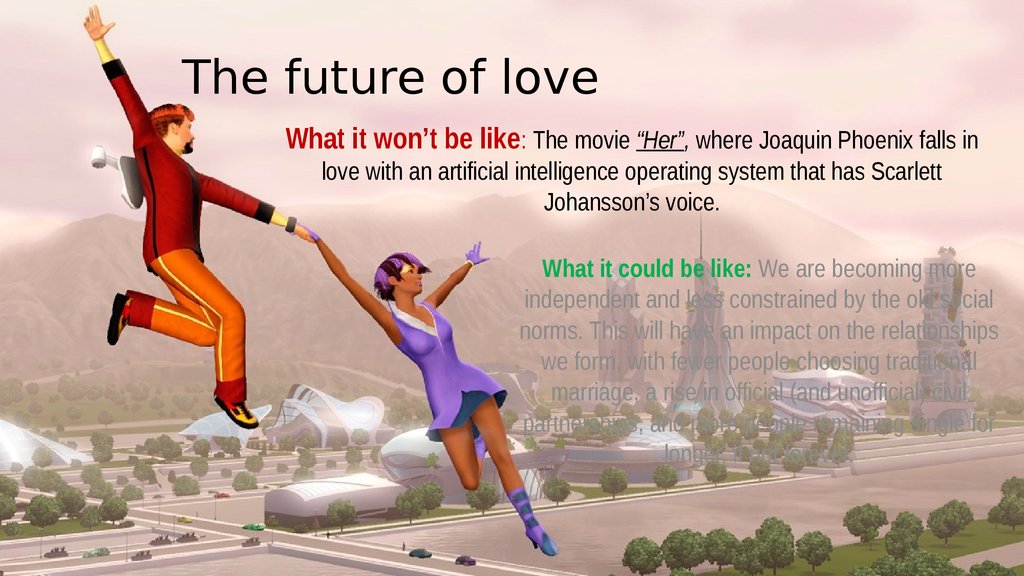
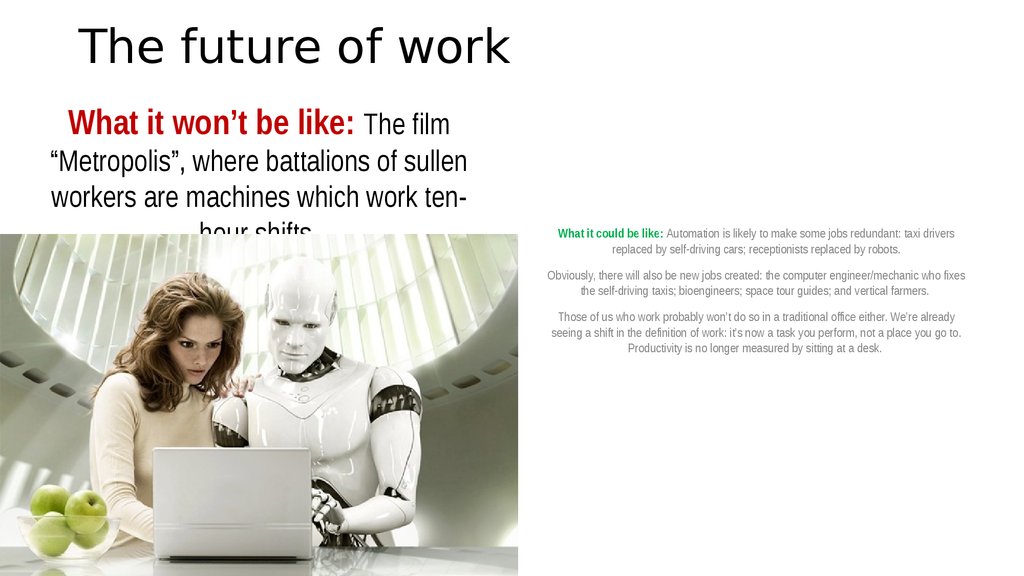
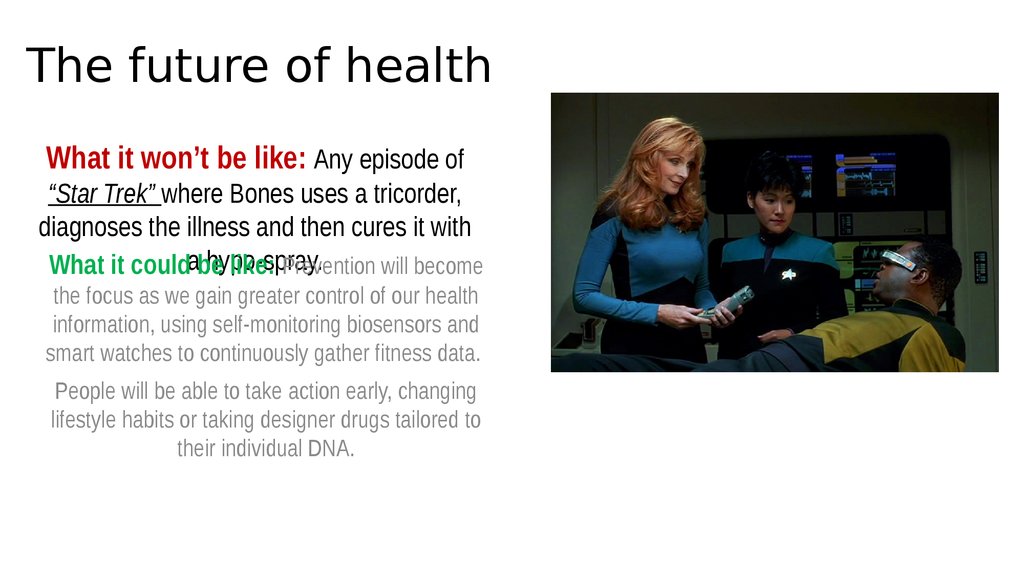

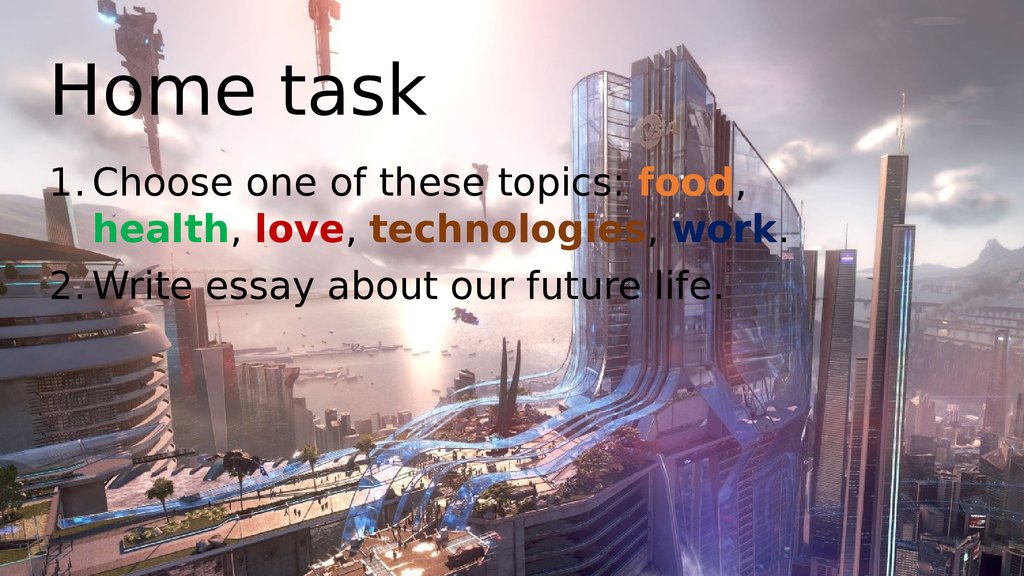
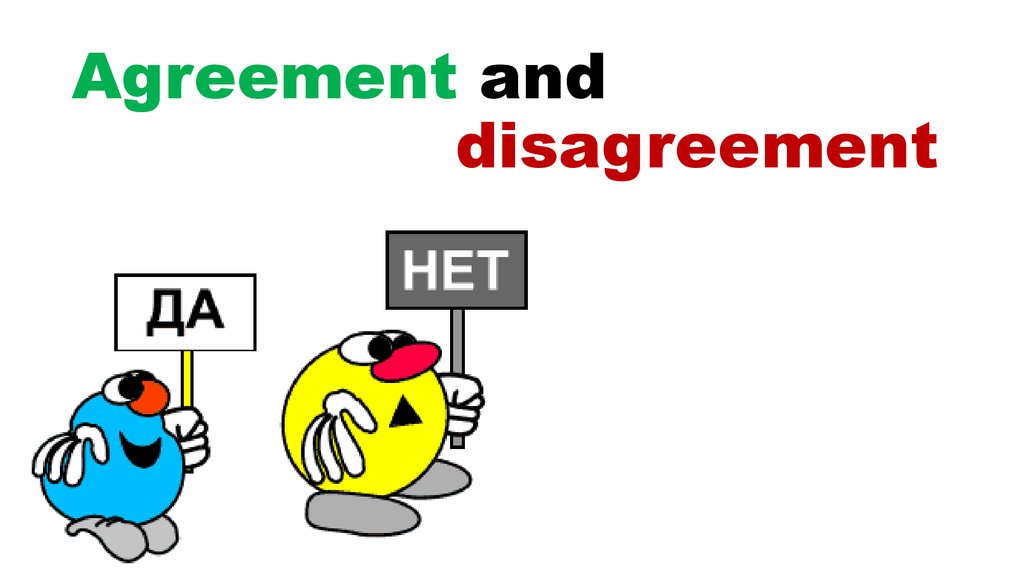
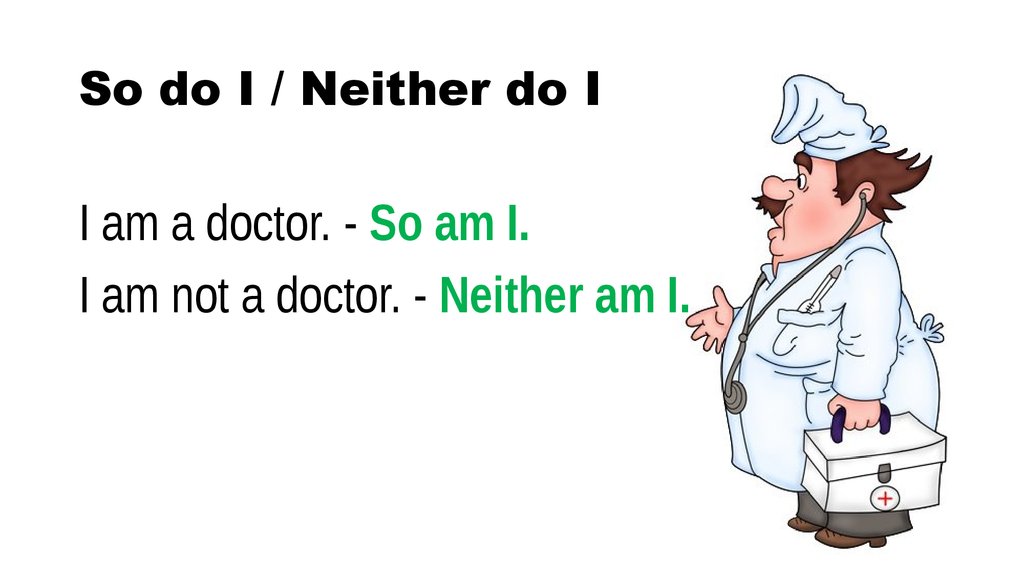
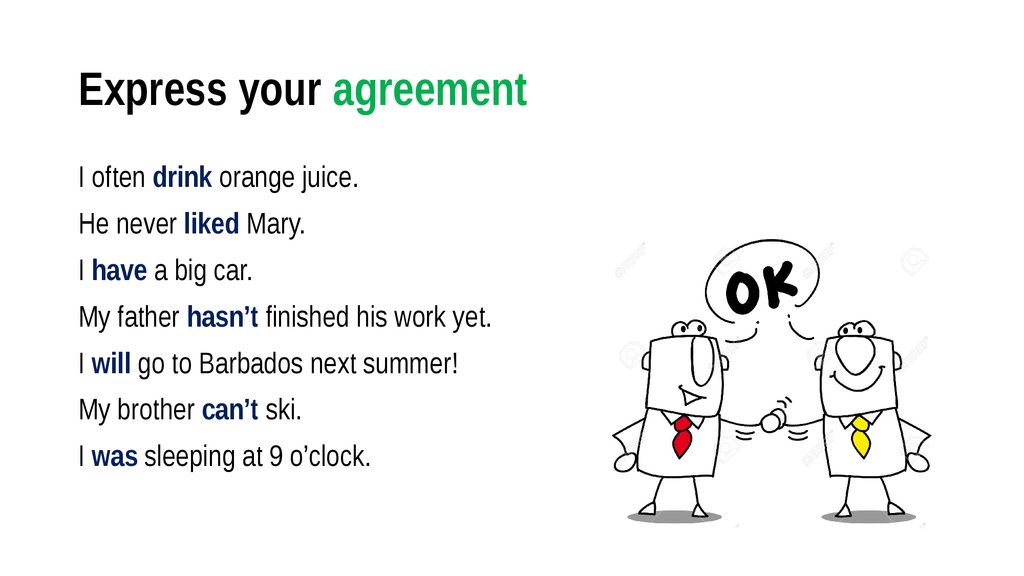
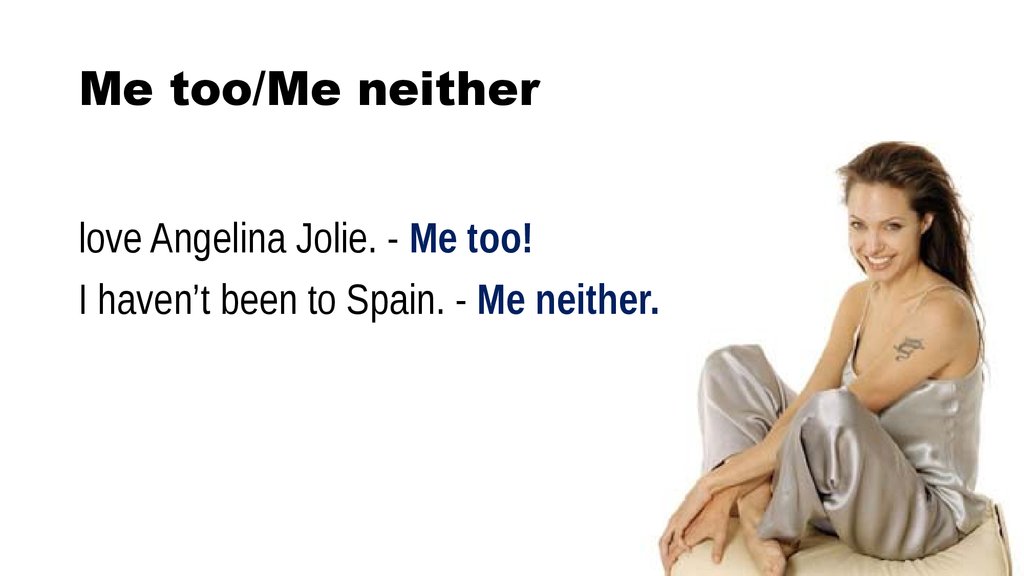
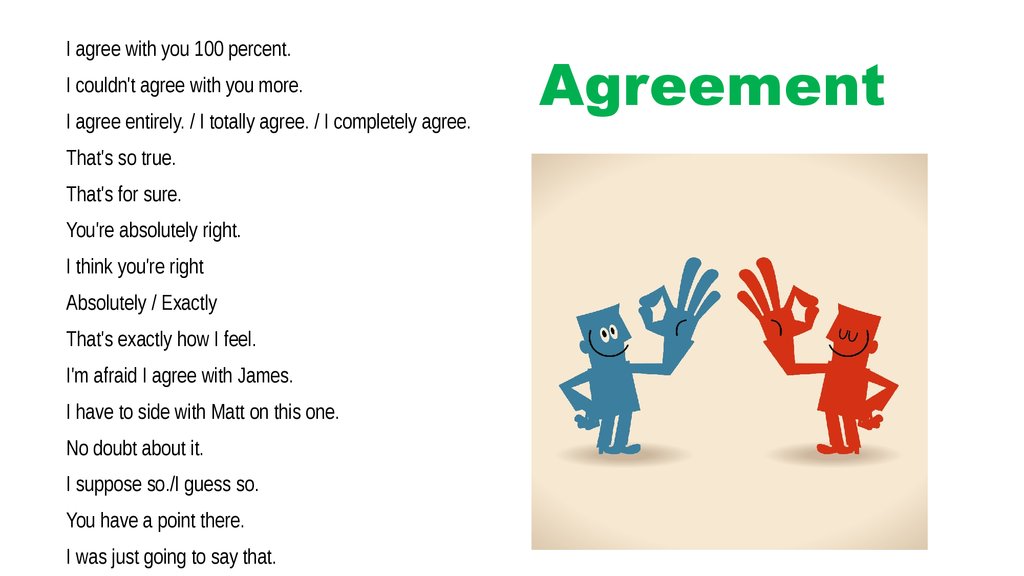
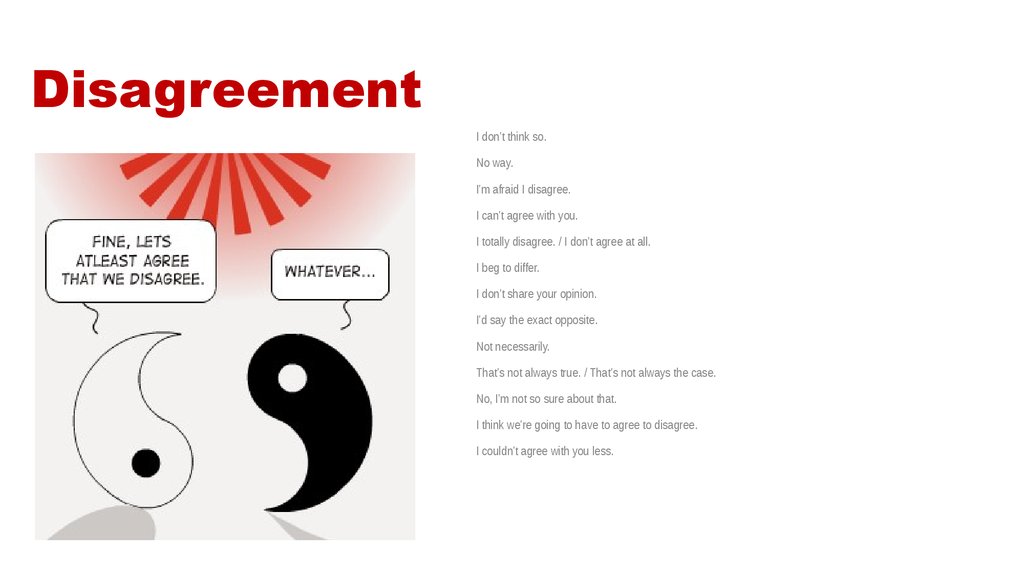
 Английский язык
Английский язык Кулинария
Кулинария








